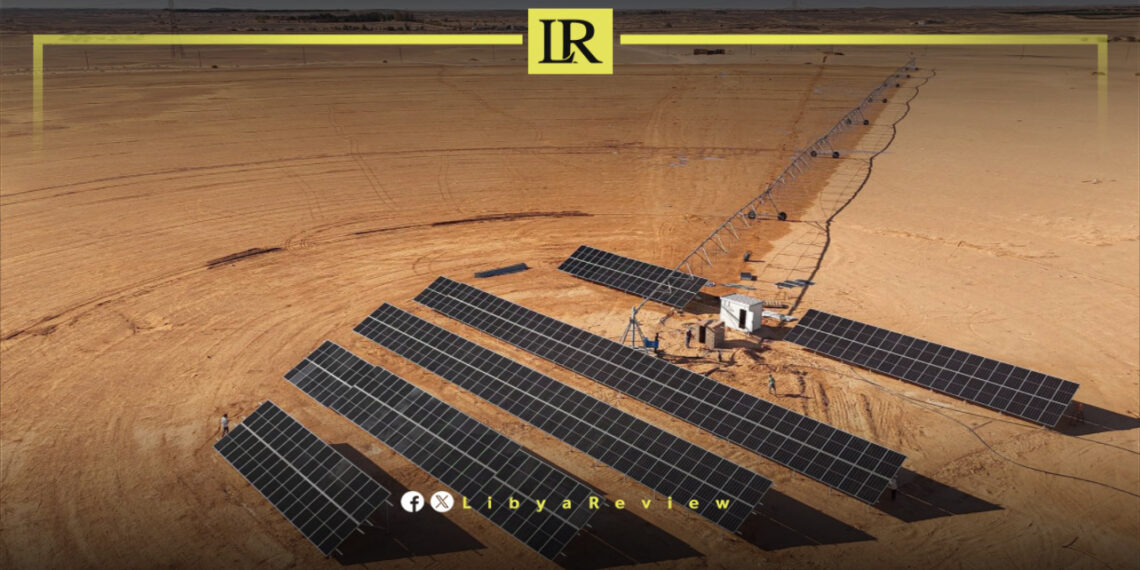Libya has launched its first solar-powered irrigation system, marking a milestone in the country’s efforts to modernize agriculture and promote renewable energy. The project was implemented by the National Development Agency as part of its ongoing agricultural modernization initiatives.
The system, located within Project No. 87 “Umm Al-Dhalal” in the Al-Zighan area of Al-Buwanis Municipality, represents a major step toward improving irrigation efficiency in productive agricultural zones across southern Libya.
During an inspection visit, the Director of Agricultural Projects at the National Development Agency reviewed the installation process and technical performance of the new system, which was approved in response to persistent electricity shortages affecting the region.
The solar-powered irrigation network includes a fully integrated photovoltaic system designed to operate two groundwater pumps — one with a capacity of 60 horsepower and another of 50 horsepower — in addition to a separate solar unit powering a pivot irrigation tower to ensure optimal water distribution and continuous operation.
According to the agency, the total energy capacity of the solar system reaches 146.2 kilowatts, enabling sustained agricultural productivity while significantly reducing dependency on the national grid. The initiative aligns with Libya’s broader national strategy to expand the use of renewable energy sources in infrastructure and development projects.
Officials at the agency emphasized that the success of this project could pave the way for similar initiatives across other agricultural areas, especially in remote regions where electricity supply remains unreliable. By integrating clean energy into irrigation, the system not only enhances efficiency and cost-effectiveness but also supports sustainable food production and environmental protection.
The National Development Agency said it will continue investing in projects that merge technological innovation with sustainability, reinforcing Libya’s commitment to modern agriculture and renewable energy as key pillars of national development.


